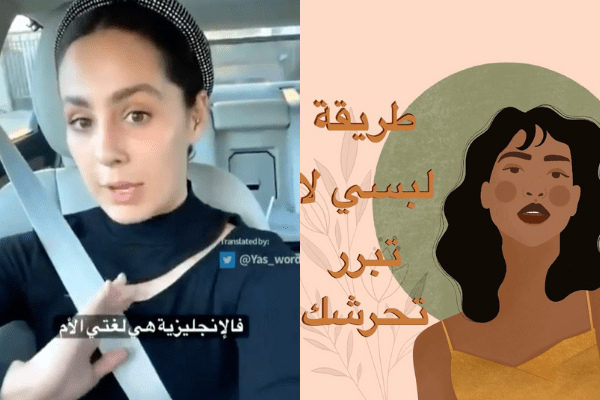Kuwaiti fashion blogger and influencer Ascia Al Faraj has sparked a #MeToo-esque social media campaign, calling out the damaging conservatism of her country’s attitudes towards women, and encouraging them to speak out against sexual harassment.
The account on Instagram, called “Lan Asket” – Arabic for “I will not be silent”, has so far featured several testimonies from women about being stalked, harassed or assaulted. The stories come from Kuwaiti citizens as well as expatriates, who encompass a large cohort of the population.
Ascia Al Faraj, 31, a mixed raced woman of American and Kuwaiti descent, has amassed more than 2.6 million followers on Instagram in the last few years and is one of the Middle East’s most influential bloggers and social media influencers. She and her husband also have a YouTube channel, called “The Hybrids” where the pair review beauty products, interview other influencers, riff on subjects including gender roles and breast-feeding trends.
In the video that sparked the “Lan Asket” page, which Faraj posted on Instagram last week, the mother of two said there is a “problem” in her country of almost 5 million people.
“Every time I go out, there is someone who harasses me or harasses another woman in the street,” she said in the video uploaded after an incident where a car sped up to “scare” her while she was walking to her own vehicle.
“Do you have no shame? We have a problem of harassment in this country, and I have had enough.”
“Harassment is a crime & we need laws to protect us against it,” Faraj wrote on her Instagram post. “There is nothing of substance in place to protect victims – currently, filming instances of abuse to provide as evidence in your case turns the law against *you* for filming without permission. This is state-supported negligence & we demand action.”
Faraj’s video triggered a nationwide movement in a country where rape within a marriage is not considered a crime, and women could not obtain a passport without a man’s permission until 2009.
The U.S embassy in Kuwait tweeted its support, saying that “Lan Asket” was a “ …campaign worth supporting. We can all do more to prevent harassment against women, whether in the US or in Kuwait.”
The embassy accompanied the Tweet with an image of three women, one unveiled, one with a headscarf and another with her face covered, with the slogan “Don’t harass her” — which Faraj posted on her tile.
Rothna Begum, a senior researcher at Human Rights Watch, told AFP that in Kuwait, the police frequently brush off abuses and consider silencing women a necessity in order to avoid bringing on shame to their family.
“These accounts being published are incredibly important to give Kuwaitis a sense of what harassment actually looks like and the terrible harm it causes,” she said.
Despite Kuwait being one of the more progressive nations within the Gulf region, public conversations surrounding gender-based violence remains a taboo, and support for women who have been victims of abuse and harassment is not easily accessible.
Lulu Al-Aslawi, a fellow influencer from Kuwait told the AFP she is often harassed and bullied online for the way she presents herself.
“Girls don’t speak up over fears of being stigmatised, but we will not stop until we overcome this cancer in society,” she said.



